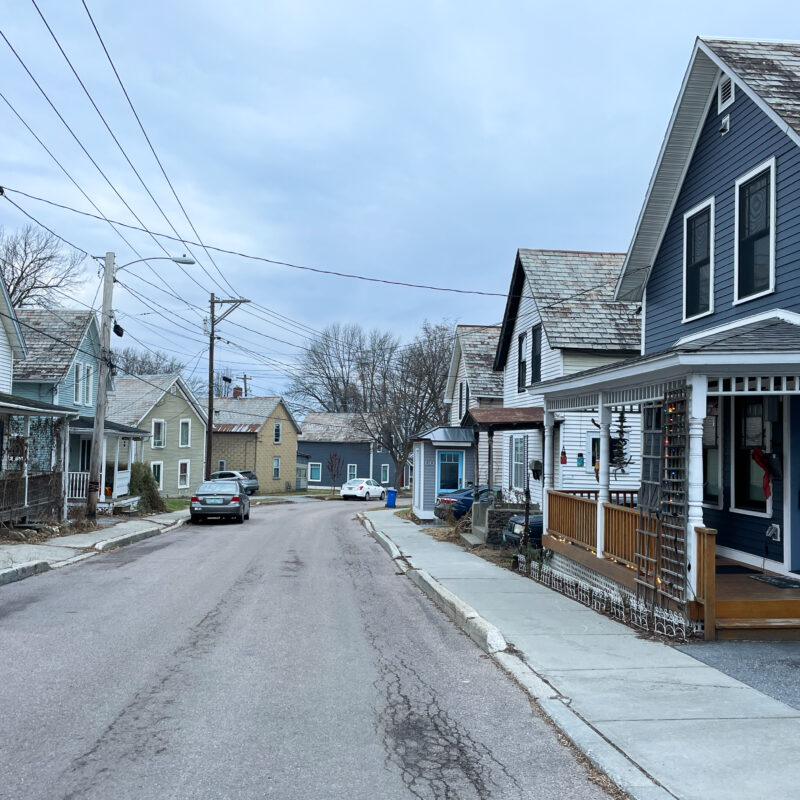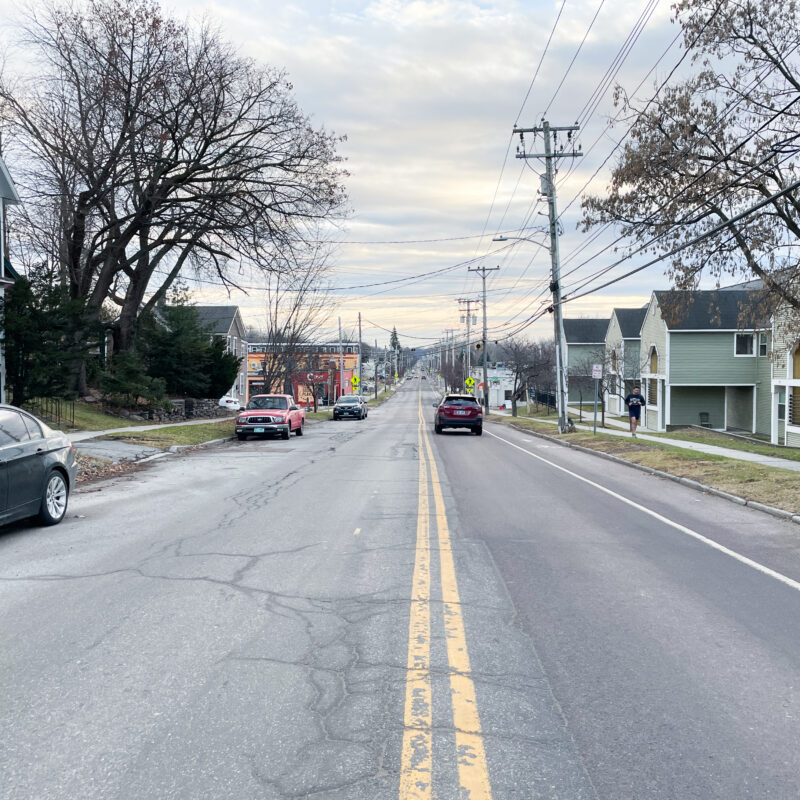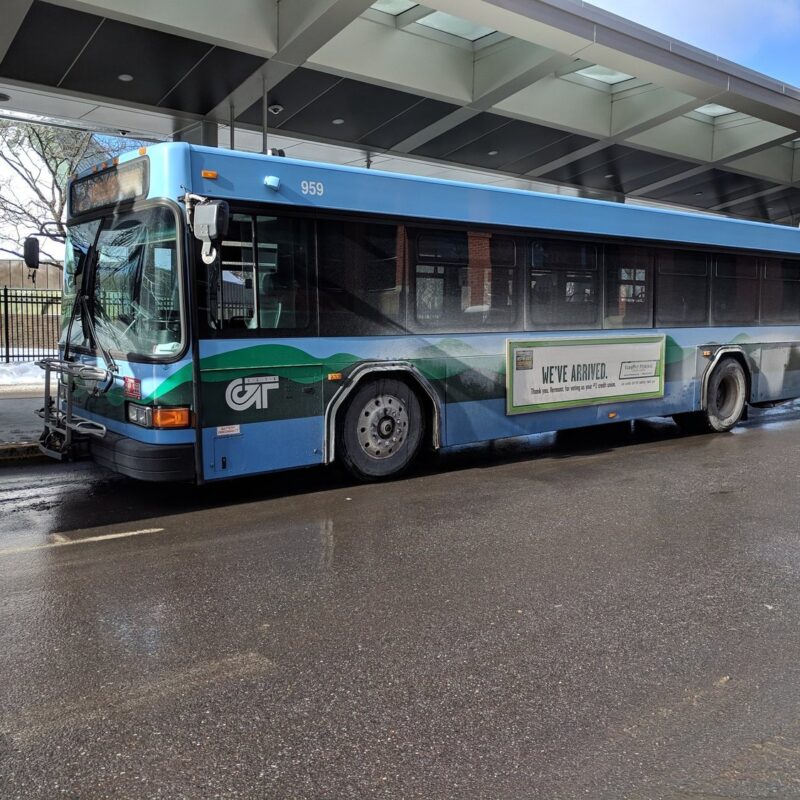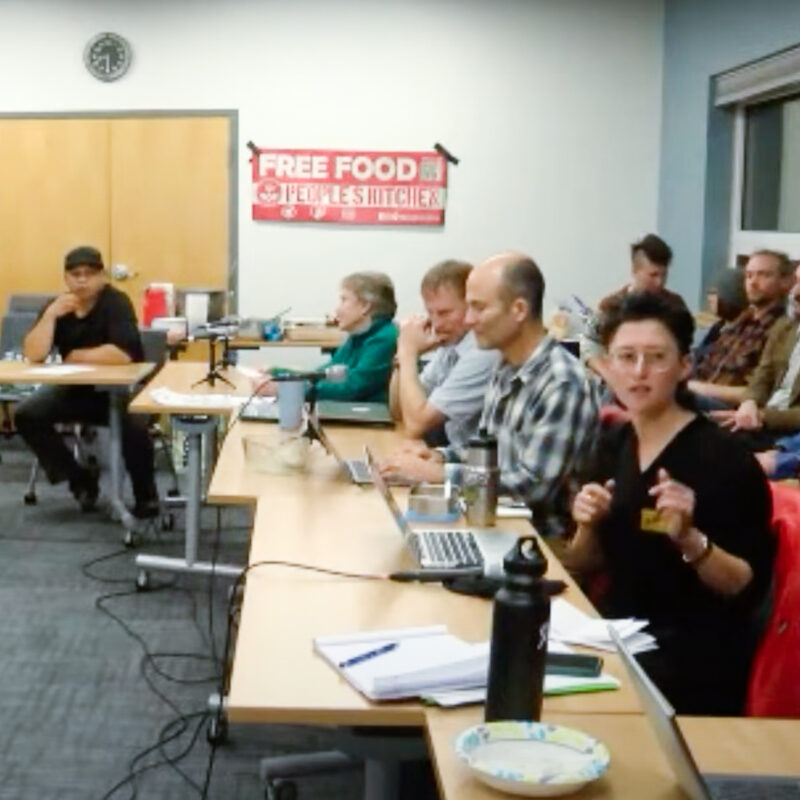Ward 5 is home to longtime Burlingtonians, newcomers to our community, and tremendous physical change. In the last year, we have watched the Champlain Parkway unroll before our eyes and in our backyards, and the South End Innovation District rezoning move forward.
In coming years, we will face opportunities and challenges to make sure all new development in our neighborhood is truly serving our diverse and evolving needs.
Burlington is struggling right now: housing is scarce and prohibitively expensive; members of our community are suffering from opioid addiction; our city and state are feeling the impacts of a changing climate.
It can be hard to feel safe and satisfied here. That’s unacceptable, and we can do better. I envision a future in which Burlington is characterized by its sustainable places and resilient communities. Here are some components of that bright future:

Housing
We need affordable housing as soon as possible, built to meet our current deficit and future needs. Forward-thinking planning and development can help Burlingtonians of all income levels thrive:
- Bold negotiation with developers of the South End Innovation District to ensure that housing is truly affordable for renters; at sizes and prices that are accessible for first-time homeowners; and built with easy access to public transportation/walk-bike infrastructure.
- Require investment from higher education institutions to sufficiently house students on and off-campus.
- Hold our Code Enforcement department to a higher standard for the safety of renters and to ensure better upkeep of our existing housing stock.
- Enforce the rental weatherization and short-term rental ordinances to improve efficiency and comfort of rental units and prioritize housing for renters over tourists.
- Explore rent stabilization policies.

Community Health and Safety
Keeping our streets and neighbors safe requires us to address root causes – like poverty and homelessness – as we tackle the drug crisis and low-level crime.
- Increase staffing of Community Service Liaisons (CSLs) and Community Service Officers (CSOs).
- Support citywide investment in low-barrier shelters for people experiencing homelessness, and ensure that those shelters connect visitors with support towards exiting homelessness.
- Work closely with community partners to provide detox beds, overdose prevention centers, and methadone Provide sharps boxes in public parks and support syringe litter cleanup programs, and support safe injection sites.
- Advocate for quick and responsive disbursement of funds from opioid settlements to support existing and new initiatives.

Climate resilience and food security
Climate change puts a strain on our energy and food systems, and demands that we adapt to less predictable weather while cutting carbon emissions as quickly as possible.
- Revise the 2019 Net Zero Energy Roadmap to include and address the two largest sources of pollution that Burlington owns and operates – Burlington International Airport and the McNeil Generating Station. Implement alternatives to the McNeil Generating Station and phase it out as soon as responsibly possible – ensuring that we maintain affordable, stable electricity rates.
- Continue to offer rebates on efficient appliances and
increase incentives to switch to heat pumps, heat pump water heaters, and decentralized solar power. Incentivize geothermal heating systems in new construction. - Add heft to the building decarbonization ordinance passed in 2023 by including buildings over 25,000 square feet and raising standards on taxation of dirty fuels.
- Ban all gas-powered landscaping equipment; create informational materials to support planting of pollinator habitat; and revise City horticultural policies to prioritize planting of trees and shrubs that produce food wherever possible.
- Invest in infrastructure essential for a healthy, robust regional food system, like commercial kitchens, processing facilities, cold, frozen, and dry storage, and community greenhouses. Support providers of emergency food, like food shelves and mutual aid groups.

Public Infrastructure
Public spaces, streets, and transit are what make a city livable. We need these resources to suit the needs of current and future residents of the South End.
- Continue to operate the Champlain Parkway project hotline and ensure that resident feedback is taken and addressed in a timely manner.
- Ensure that robust public input is not just solicited, but respected, in developments along Queen City Park Road.
- Invest in transit corridors – the Champlain Parkway, the Burlington Greenway, Pine Street, and Shelburne road – that are well-serviced by public transit, and safe for walking and biking.
- Extend the fare-free bus program indefinitely. Electrify our Green Mountain Transit bus fleet while expanding public transit access and frequency.

Direct Democracy
Public engagement and accountability is essential for a healthy democracy.
- Build a culture of community engagement and input and accountability for elected officials.
- Support the passage of a charter change that enables citizens to put proposals on the ballot and pass policies through the popular vote.
- Resume funding to Neighborhood Planning Assemblies for food, transportation, childcare, and special events.